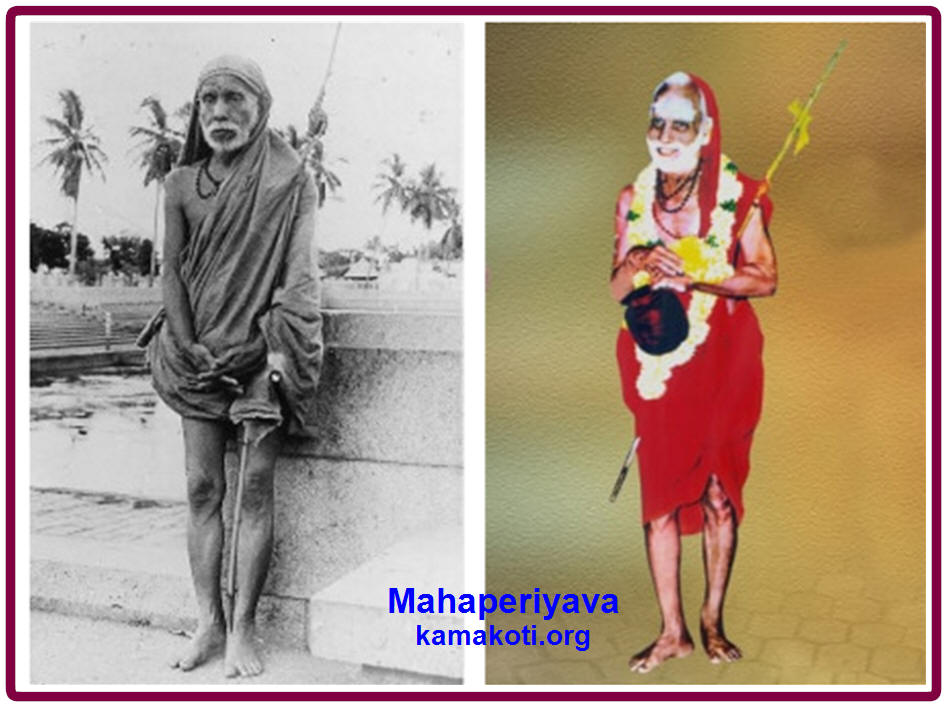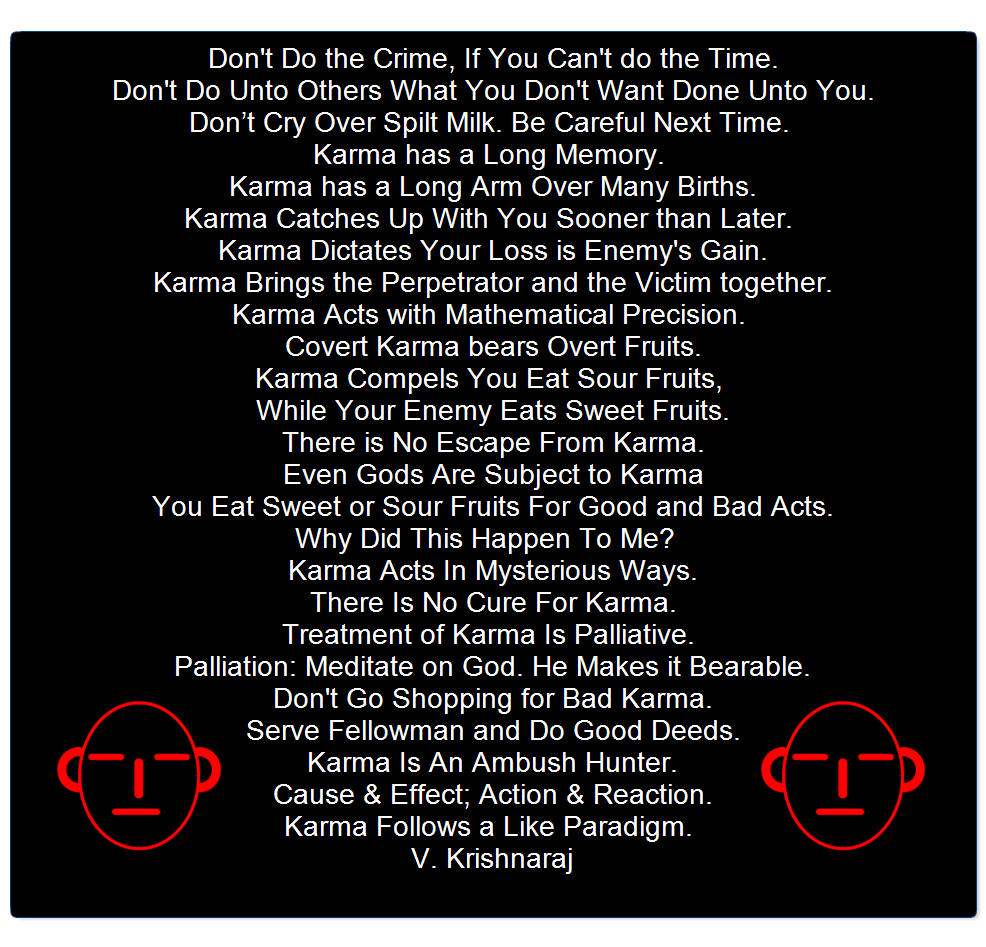Periyava
Translation from Tamil: V. Krishnaraj
துக்க பரிகாரம் : தெய்வத்தின் குரல் (முதல் பகுதி)
http://www.kamakoti.org/tamil/part1kural18.htm
When a person suffers from a disease, many people attribute it to different causes. Ayurvedic physician attributes it to vātam, pittam, cilēṭ- ṭumam. The allopathic physician gives another cause. The psychiatrist may attribute it to some other cause. The Mantra Sastra Meister says it was from a divine cause. Astrologer attributes the cause to the planets. Dharma Sastra experts say the disease was the fruit of past life sins.
Besides the causation of disease, the causes of life’s joy and sorrow are said to be many. One disease and multifactorial causes lead to confusion. Should we propitiate the planets as suggested by the Jyotishar? Could the cause be due, as said by Mānthrīkar, to an offence done to family deity, other deity, or village deity? Should a propitiatory remedial ceremony be performed? Medical treatment should be instituted for medical condition. If all are due to the fruits of Karma, should we remain passive waiting and marking time until the resolution brings it to an end and not doing anything about it? This is how confusion reigns supreme.
Among many causes, what is Satyam (Truth)? Upon reflection all appear to be Satyam. It is a certainty the primordial cause is our Karma. That Karma itself as one entity brings manifold results. Rain is one example; from it come many products. The earth becomes moist; termites appear; the frog makes sound; some plants have a verdant look; some others rot. According to Sastra, a (good) Karma cures a disease. Besides the diseases, multitude of problems should be attended to, referring to money, vocation, strength of body, power of intellect… All problems and difficulties find their convergence in Karma. Science dictates where there is an effect, there must be a cause.
There are world-encompassing principles with the following paradigms: Cause and Effect; Action and Reaction. Physics explains this truth. Since Inert world and world of Jīva come from one source, the law of the material world applies to the human life. All our actions have counteractions. What we experience today as joys and sorrows come from meritorious and demeritorious causes (Karma) in this life or in the past life. Sometimes besides fruits of our own making of good and bad karmic deeds, some say that the Karma of others, good and bad, influences us. When we see they constantly service the infant’s needs, and worry about their infant, we find it is justice. Something else dawns in me (Periyava). When we suffer a misfortune, we can say it is the fruit of meritorious deed of our enemy.
One Parāśakti causes the world’s many activities. The world’s direction is under the order of one Īśvara. He connects many events. Nothing in this world happens without a connection. Sarvēśvaran indulges in amusement by connecting inside (him) the unrelated phenomena.
The first cause of life’s joy and sorrow comes from a person’s Karma and its fruit. The secondary causes are planetary configurations, omens…, blasphemy…
We can seek remedies with astrology, medical treatment, Māntīrīka… When the Karma comes to a proper resolution, the fruits are bestowed. Life, led with Bakthi and compliance to Bhagavan’s will, dedication to Īśvara, silence and maturity, is more commendable than other ways. That is a great remedy, a true remedy.
Whatever is the course of Past Karma, it is important not to increase the Karmic burden henceforth. Instead of searching for remedy for the old Karma, it is important to seek the help of Īśvara to stop accumulating new Karma and desist from doing new sins.
Īśvara Dhyanam (meditation) is the true remedy for the present sorrow from the past Karma. It is also the means to desist from casting new seeds of Karma. There is no external agent that inflicts sorrow. That is the monistic experience one should cogitate about, which is the final state of remedy of sorrow. In there, there is no sorrow and there is no joy. The hypostasis for the two is Satyam, which remains the effulgence of one’s self

